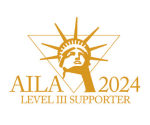It's service
 Expert Opinions
Expert Opinions
EB-2 Exceptional Ability/Advanced Degree
One may be eligible for an employment-based, second preference visa if one is a member of the professions holding an advanced degree or its equivalent, or a person who has exceptional ability.
Advanced Degree: The job must require an advanced degree and the candidate must possess such a degree or its foreign equivalent. Alternatively, a baccalaureate degree or foreign equivalent degree, plus 5 years of post-baccalaureate, progressive work experience in the field can also be equate to a Master’s degree in the specialization area of work. With supporting documents provided, our professors can evaluate the academics or provide an academic and work experience evaluation validating the advanced degree qualification.
Exceptional Ability: The other way to qualify for an immigrant visa in the second preference, is to qualify as a person of exceptional ability in the sciences, arts, or business. Exceptional ability “means a degree of expertise significantly above that ordinarily encountered in the sciences, arts, or business.” In this regard, the candidate must meet at least three of the criteria below.
- Official academic record showing that you have a degree, diploma, certificate, or similar award from a college, university, school, or other institution of learning relating to your area of exceptional ability
- Letters from current or former employers documenting at least 10 years of full-time experience in your occupation
- A license to practice your profession or certification for your profession or occupation
- Evidence that you have commanded a salary or other remuneration for services that demonstrates your exceptional ability
- Membership in a professional association(s)
- Recognition for your achievements and significant contributions to your industry or field by your peers, government entities, professional or business organizations
- Other comparable evidence of eligibility is also acceptable.
Carnegie Evaluations’ experts can opine on the veracity of such criteria claims based on the documentary evidence provided.




 Request an Evaluation.
Request an Evaluation. Login
Login








